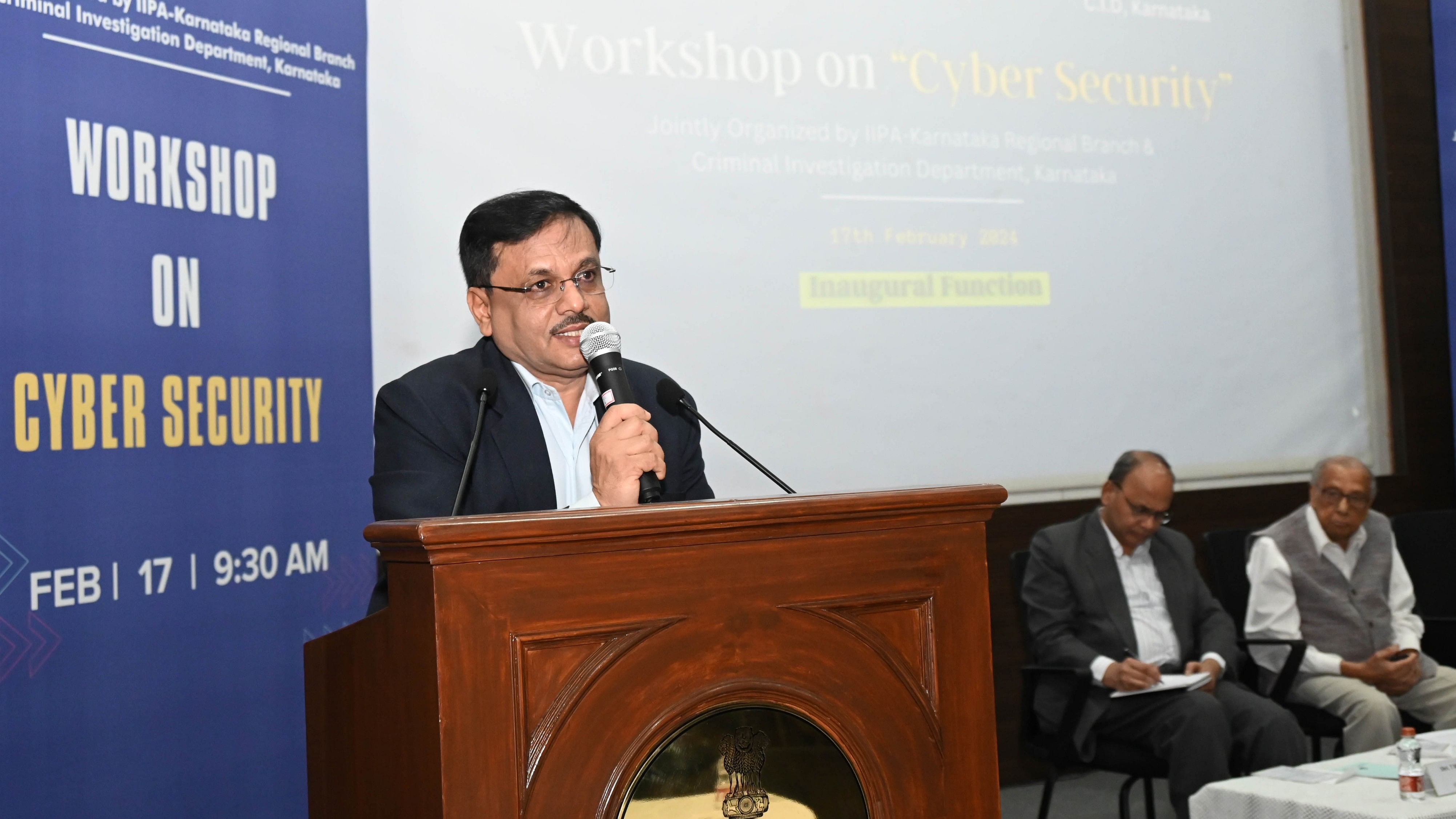
Karnataka’s DGP (CID) MA Saleem at the workshop.
DH Photo/BK Janardhan
Bengaluru: Understanding criminals and the fear they strike is key to combating cybercrimes, said Karnataka DIGP (CID) C Vamshi Krishna.
Addressing a session titled ‘Emerging Cybercrime Threat Landscape and Legislation in India’ at the workshop on cybersecurity organised by the Indian Institute of Public Administration (IIPA) and CID-Karnataka, he discussed prevalent methods of cybercrimes like the FedEx scams, phishing, and the loan app scam.
The event took place at Bengaluru’s IAS Officers’ Association.
Quoting Nobel laureate Daniel Kahneman’s work ‘Thinking Fast and Slow,’ Vamshi outlined the instinctive human bias towards fast thinking, and the rarity of logical and deliberately controlled thinking. “About 95% of the time, we prefer to be impulsive and are rarely objective. Criminals exploit these weaknesses,” the DIGP said, adding that lack of digital literacy is a major weakness.
“As per a recent survey, though people have 85 to 90 apps on their phones, they mostly use five to six apps like WhatsApp, Instagram, etc, and do not care about other features. Criminals utilise this ignorance,” Vamshi said, adding that generational gap and low digital literacy make senior citizens vulnerable to cybercrimes.
The workshop also included a session on ‘Generative Artificial Intelligence-Threats and Opportunities’ by Dr SD Sudarshan and another on ‘Data Protection and Privacy in India’ by Srinivas P.
During the inaugural session, Karnataka’s DGP (CID) MA Saleem said 25 to 30 per cent of the crimes happen online.
“In a physical robbery, there are CCTV cameras everywhere and one can never be sure of a big loot. However, things are easier in cybercrime as people can sit in different continents and mint money,” he said.
Ninety-six-year-old S Ramanathan, a 1952-batch IAS officer, said cybercriminals are so sophisticated that even the most competent officers are finding it difficult to curb the menace.